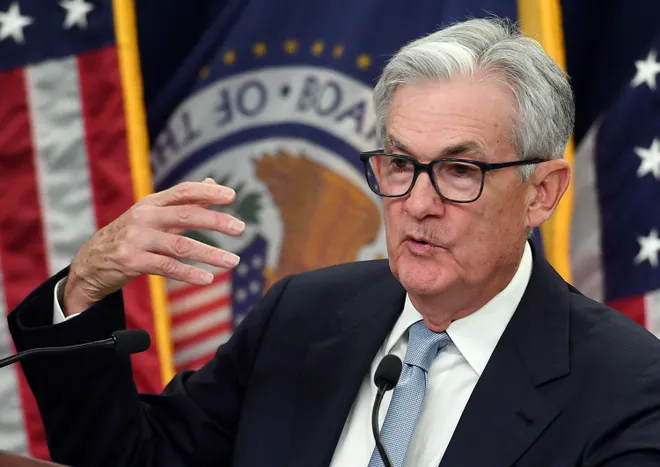Powell says Fed could raise interest rates further if economy, job market don't cool
Federal Reserve Chair Jerome Powell said Friday the central bank could raise interest rates further if the economy and job market don’t weaken more substantially, suggesting that additional hikes may lie ahead even if inflation continues to ease.
"We are attentive to signs that the economy may not be cooling as expected," Powell said at the Fed’s annual conference in Jackson Hole, Wyoming. “Additional evidence of persistently above-trend growth could put further progress on inflation at risk and could warrant further (rate increases).”
He added that job and wage growth have slowed and job openings are still high but moving lower.
“Evidence that tightness in the labor market is no longer easing could also call for a monetary policy response,” Powell said.
At the same time, he said the Fed has made progress against inflation and will move "carefully" as it weighs raising rates enough to lower inflation against going too far and nudging the economy into a recession.
Fed hike impactFed rate hikes don't just fight inflation. They hurt economy over long-term, study says
The economy grew at a stronger than expected 2.4% annual rate in the second quarter and consumer demand has been surprisingly robust despite high interest rates and inflation. Meanwhile, job growth has slowed significantly – to 187,000 in July from an average 312,000 the first three months of the year. But the unemployment rate remains historically low at 3.5%.
Fed officials, and economists, have grown increasingly optimistic that the Fed can help lower inflation without tipping the economy into a recession. But that ideal scenario could be at risk if the central bank lifts rates further to cool the economy out of concern that growth that’s not sufficiently soft could reignite inflation.
The Fed has raised its key interest rate to a range of 5.25% to 5.5% -- a 22-year high -- and many economists believe it will now hold rates steady, but others say officials could agree to another hike this year.
While Powell noted that inflation has come down, he said it’s still too high and the Fed may need to do more to lower annual consumer price increases to the Fed’s 2% goal. The Fed's preferred measure of annual inflation, which excludes volatile food and energy items, has fallen from 5.4% in February 2022 to 4.3% in July.
“We are prepared to raise rates further if appropriate and intend to hold policy at a restrictive level until we are confident that inflation is moving sustainably down toward our objective,” Powell said, suggesting that rate cuts aren't likely anytime soon.
Although both pandemic-related supply chain snags and consumer demand have eased, “the process still has a long way to go,” he said.
Powell, however, didn't say the Fed is leaning toward additional rate increases and struck a balance been raising rates too much and too little.
“Doing too much could also do unnecessary harm to the economy,” he said. "Given how far we have come, at upcoming meetings we are in a position to proceed carefully as we assess the incoming data and theevolving outlook and risks."
“Based on this assessment, we will proceed carefully as we decide whether to tighten further, or instead, to hold the policy rate constant and await further data.”

Disclaimer: The copyright of this article belongs to the original author. Reposting this article is solely for the purpose of information dissemination and does not constitute any investment advice. If there is any infringement, please contact us immediately. We will make corrections or deletions as necessary. Thank you.







